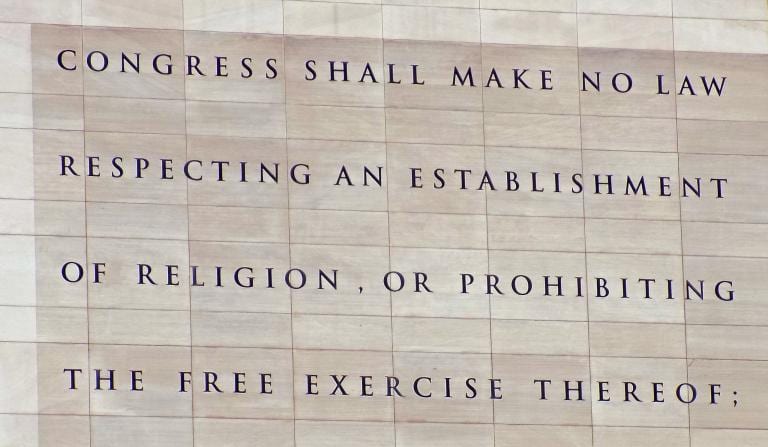
Religious liberty used to be taken for granted in the United States, but today–especially in the aftermath of the sexual revolution– it has become controversial and a matter for litigation. Here are some of the latest developments.
Title IX
Title IX of the Civil Rights code forbids sex-related discrimination in schools and universities that receive federal money. (This includes colleges that accept money from federally-guaranteed student loans.) The Obama administration interpreted the law to include under “sex” things like gender identity. Title IX has been like a sword of Damocles hanging over the heads of Christian institutions that have qualms about transgenderism and policies against homosexuality. (My old employer, Patrick Henry College, avoided the entanglement by refusing to take federal money.)
The text of the law includes a religious exemption for institutions “controlled by a religious organization,” which would seem to refer to schools actually owned by a church–but what about independent Christian schools and colleges? The current regulation from the Department of Education requires institutions wishing to invoke a religious exemption to apply for the privilege.
But a proposed revision to the policy that is being recommended would make clear that, in the words of Family Research Council spokesperson Alexandra McPhee, “When Title IX’s terms are not consistent with an institution’s religious tenets, such as those involving marriage and related sexuality issues, the institution has the right to implement policies that put its tenets into practice without facing a loss of federal funding.”
Campus Groups
As we blogged about, some universities have been throwing Christian organizations off campus for requiring their leaders to be Christians or in agreement with a Christian statement of faith and morals. Such requirements that leaders must support the organization’s principles are said to constitute “discrimination.”
But a federal court has ruled against the University of Iowa in forbidding that practice. The university allows other groups based on race and sex, reasoned the court, and religion is likewise a protected category entitled to the liberty of its convictions.
Spiritual Care at One’s Execution
The Supreme Court turned down an appeal from a condemned criminal, a Muslim, who requested that an Imam be present at his execution. The policy of the state of Alabama prison system is to allow that privilege only to employees–that is, the prison chaplain, who is a Christian. The court said that the request was too “last minute” and allowed the execution to proceed, not ruling on the religious liberty issue as such.
The decision has sparked great criticism, along with reminders that religious liberty must apply not only to Christians but to those who hold to other religions as well. The case also suggests that chaplains–religious ministers hired by a government entity–may become a major issue in religious liberty battles.
May the government hire chaplains, given the “nonestablishment” clause? If it does, must it accommodate every religion, and, if so, how? Must a chaplain work in not only an ecumenical but an interfaith manner? And what rights does the chaplain have for his own confessional integrity?
Our military chaplains, who for the most part are doing a stellar job, are already facing many challenges, including pressure to perform same-sex marriages and support transgender rights. More litigation on these issues is likely, and the outcomes are not easily predictable, even with “conservative” courts.
Illustration by Mr. Gray via Flickr, Public Domain














